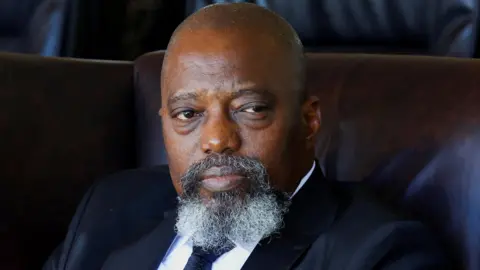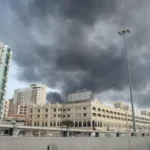In a dramatic turn of events in the Democratic Republic of Congo (DRC), former President Joseph Kabila has publicly lashed out after the government lifted his immunity, paving the way for treason charges against him. The move marks a significant escalation in the country’s ongoing political tensions and raises questions about the rule of law and justice in the region.
Background of the Case
Joseph Kabila, who served as DRC’s president from 2001 to 2019, has remained a powerful political figure even after stepping down. His tenure was marked by allegations of corruption, election disputes, and efforts to maintain influence over the country’s political landscape. Despite leaving office, Kabila’s supporters continue to wield significant power, and he has been a prominent figure in recent political debates.
The government’s decision to lift immunity was based on allegations of treason, among other charges. These accusations are linked to claims that Kabila and his associates engaged in activities undermining national security, including alleged involvement in destabilizing plots and abuse of power during his presidency.
Kabila’s Reaction
In a fiery statement, Joseph Kabila denounced the charges as politically motivated and part of an attempt to tarnish his legacy. He accused the government of using legal procedures as a tool to eliminate political rivals and consolidate power. Kabila emphasized that he has always prioritized stability and peace in the DRC and dismissed the charges as unfounded.
“This is a clear attempt to silence opposition and distract from pressing national issues,” Kabila stated. “I have always acted in the best interest of the Congolese people, and I will continue to stand for justice and transparency.”
He further called for calm and urged his supporters to remain peaceful amid what he described as political persecution. His supporters have rallied around him, claiming that the legal proceedings are a ploy to weaken his influence and undermine democratic institutions.
Legal and Political Implications
The lifting of immunity for a former leader is a rare and significant move in Congolese politics. It signals a shift towards holding powerful figures accountable, but also raises concerns about political stability and the potential for increased tensions.
Legal experts note that such charges, especially treason, carry serious consequences and could lead to long legal battles. Critics argue that the move could be used selectively against political opponents, potentially undermining the country’s fragile democratic processes.
The international community has watched closely, with some organizations calling for transparency and adherence to fair trial standards. Human rights groups emphasize the importance of ensuring that legal proceedings are free from political interference.
Broader Context
DR Congo has a history marred by conflict, political unrest, and struggles with governance. Former leaders have often faced legal scrutiny after leaving office, sometimes leading to political crises or violence. The current situation underscores the ongoing challenges in establishing rule of law and accountability.
While some see the move as a step toward justice, others view it as a political maneuver aimed at consolidating power. The coming weeks will be crucial in determining how the legal process unfolds and whether stability can be maintained.
Conclusion
Joseph Kabila’s public outburst following the removal of his immunity highlights the tense and complex political landscape in the Democratic Republic of Congo. As the legal proceedings move forward, the nation grapples with questions about justice, accountability, and the future of its democracy. The world watches as DRC navigates this pivotal moment, hopeful that rule of law and peaceful resolution will prevail.
Email Us on editorial@nnafrica.com













